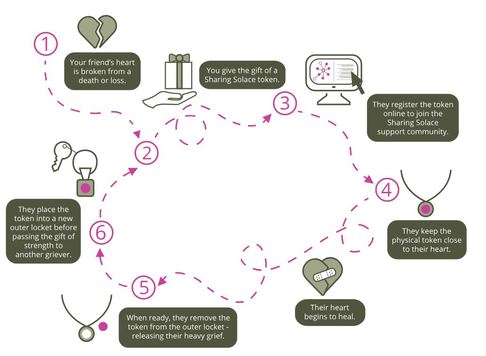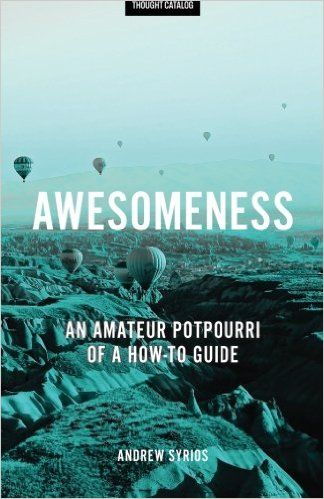|
I attended the weekly meeting of One Million Cups this week. It’s an event I’ve actually been intending to go to for a while but have just never found the time. One Million Cups is a platform for entrepreneurs to share their business with like-minded individuals while getting feedback and questions. Its website describes itself as “[One Million Cups is] Based on the notion that entrepreneurs discover solutions and engage with their communities over a million cups of coffee, the Ewing Marion Kauffman Foundation developed 1 Million Cups in 2012—a free program designed to educate, engage and inspire entrepreneurs around the country. Through the power of volunteers, 1 Million Cups has grown to more than 180 communities.” (1) Each week, two entrepreneurs give a six-minute presentation on their business or idea. Then the hosts ask them a few questions before opening it up to the audience. This week, Crystal Webster with Sharing Solace and Steven Coen with SaRA Health gave brief presentations of their companies. Crystal Webster: Sharing Solace Crystal started her story off with how she met her husband, got to travel the world and eventually had a child. It sounded like the beginning of a guru pitch you would get from someone selling you a get-rich-quick-scheme until it shifted course very quickly. Unfortunately, her daughter passed away only eight hours after she was born. This was, quite obviously, an extremely traumatic event for Crystal to live through. And she had to endure a deep grief that lasted with her for well over a year. Even today, many years later, she still tears up when talking about it. Eventually, she came up with the idea to create a business and a method of helping others grieve after tragedies. She started the company Sharing Solace which, as its website says, “is a community of grievers for grievers.” (2) The idea behind it is that you buy either a keychain or necklace for yourself or for someone you know who has just had their heart broken. Inside the keychain is a “sharing solace token.” You then register the token on the website and keep it on you until you believe you have healed. You can then remove the token and send it back. The token is then put in a new locket and sent out to someone else who is grieving. At this point, you can go online to view the “token tree” to see where the token you once had is. The following chart from her website better illustrates the process: The process is meant to bring people who are grieving together. And the site also has forums and online journals to facilitate this and build a community.
Her marketing technique also sounded strong. It’s mostly done through direct sales where she first “bribes people with candy” to get them to talk. Then she just says “Sharing Solace is a community of grievers for grievers.” At that point, if people either are grieving or know someone who is, they usually open up. This gives her an opportunity to talk about her business which is of interest to many such people. That being said, I do see a few challenges. She currently has a patent pending, but this concept seems difficult to patent. The concept also takes a little time to understand, which is always a problem for new products. The chart she provides is great, but it should be on the front page of the website (instead its under the heading “Boutique”). Finally, I’m not sure that a token that gets passed along adds that much over the currently existing communities for people in grief. The community is the most important part in my judgement, and in that, her product is not very differentiated from other communities of grievers. The business is, however, aimed at a very niche market. And those are the one’s most likely to succeed. She also has a very effective way of selling the product; empathizing with people in grief. I think she can be successful with this idea, but it probably has fairly limited potential. Steven Coen: SaRA Health This is actually the second company Steven has started; the first digitized university documents and was marginally successful. After that, he got a job before going to grad school at UCLA. There he met his two other partners, one in business and one in programming, and together they started SaRA Health. SaRA stands for Simplify and Recovery Assistant. Their motto is “paper handouts suck.” The product provides patients a way to keep track of their physical rehabilitation exercises more effectively as well as for physical therapists to monitor and evaluate their patients’ progress. This is all fairly personal to Steven. Many years back, he had a full ACL and meniscus reconstruction surgery. He didn’t follow the prescribed exercises on the paper handouts he was given very well. For that reason, he stayed on Vicodin longer than he would have otherwise needed to and ended up going through some pretty severe withdrawals. According to the website, SaRA “simplifies recovery by eliminating inefficiencies, motivating patients, and keeping providers informed of progress.” (3) It does this with an app instead of paper handouts. The app reminds patients when to do the exercises and actually films them doing those exercises. It tracks sets, reps, pain and effort. Then it provides this information to the physical therapist for evaluation. Steven noted that the product just seemed like something that should have already been invented. I think this is common amongst entrepreneurs. One great way to think of business ideas is to ask “why don’t I do it?” when you ask yourself “why hasn’t anyone come up with that.” The marketing plan seemed a bit strange though. They were going to target employers so that they could get their staff who were on workers compensation to use it. This would make their staff recover quicker, which would save those employers money. That seems a bit of a roundabout way to go to me. They seemed to fear that it would work against the physical therapists’ interest because 1) why should the physical therapist have to pay for it and 2) it would shorten the recovery time and actually work against their economic interest. I highly doubt that physical therapists, in general, would reduce the quality of their service to pinch a few pennies. I believe they should market to both as well as schools with athletic departments and other institutions like that. While the product isn’t particularly “sexy,” it does serve a useful purpose and could very well be successful.
Comments
|
Andrew Syrios"Every day is a new life to the wise man." Archives
August 2018
Blog Roll
Bigger Pockets REI Club Tim Ferris Joe Rogan Adam Carolla MAREI Worcester Investments Entrepreneur The Righteous Mind Star Slate Codex Mises Institute Tom Woods Consulting by RPM Swift Economics Categories |

 RSS Feed
RSS Feed


